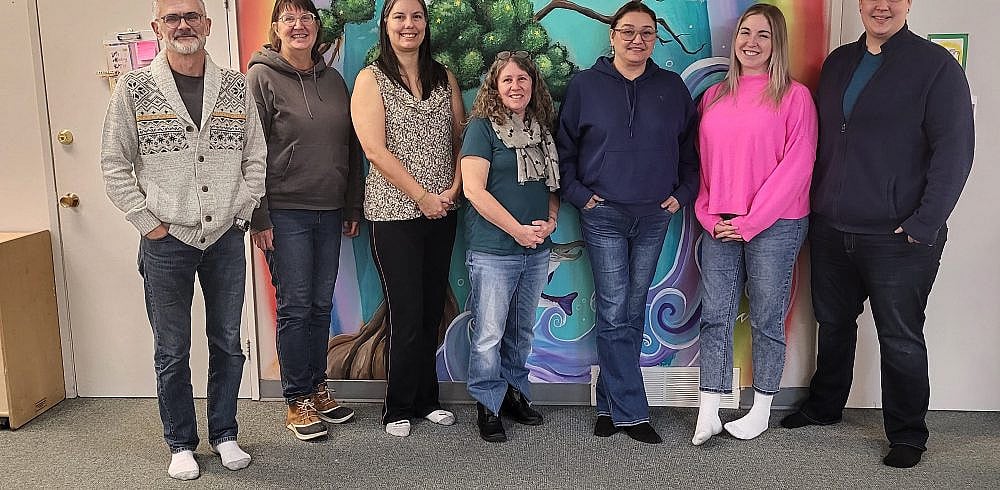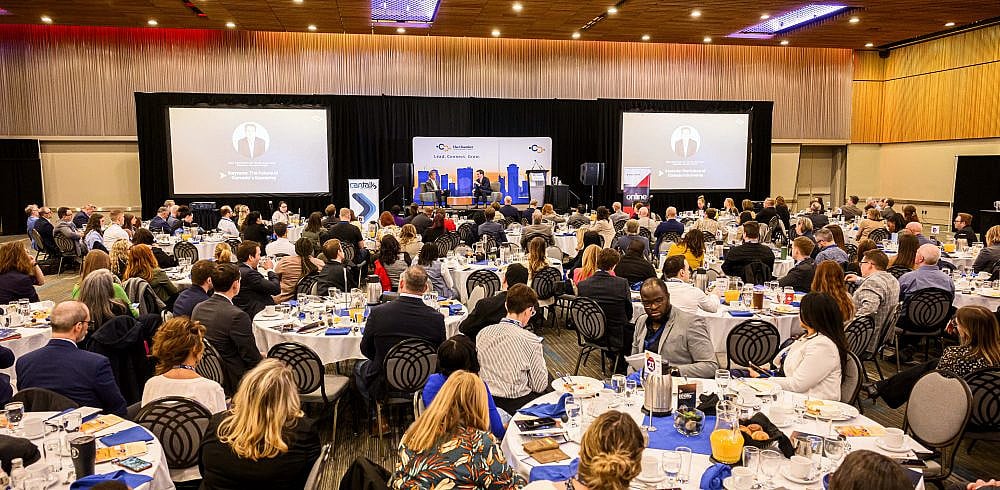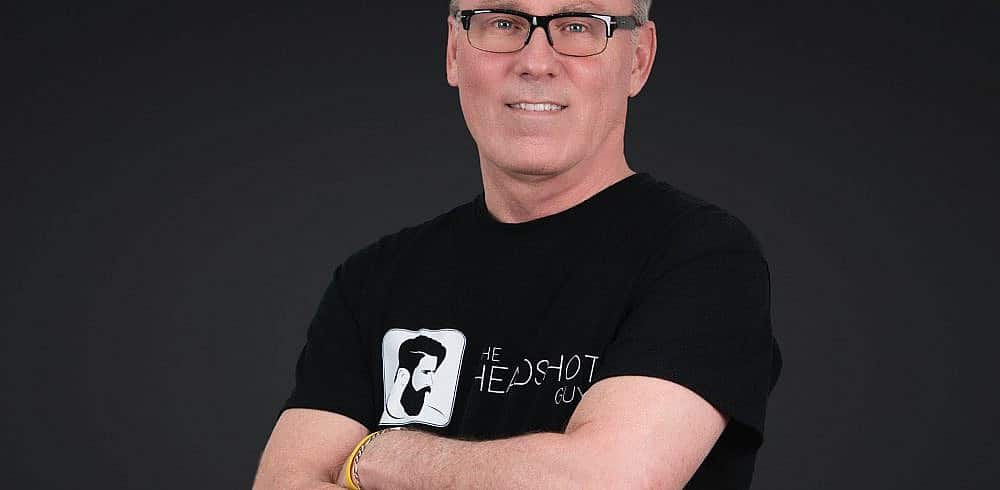5-minute read
Welcome to our insightful discussion on cultural competence and inclusion in the workplace with Robyn Penner Thiessen from Robyn Penner Thiessen Consulting. We had the opportunity to chat with Robyn, an expert in the diversity, equity and inclusion (DEI) field, to delve into their profound experiences and critical insights.
Winnipeg Chamber of Commerce (WCC): Your journey toward focusing on anti-racism and cultural competence is intriguing. Could you share more about it?
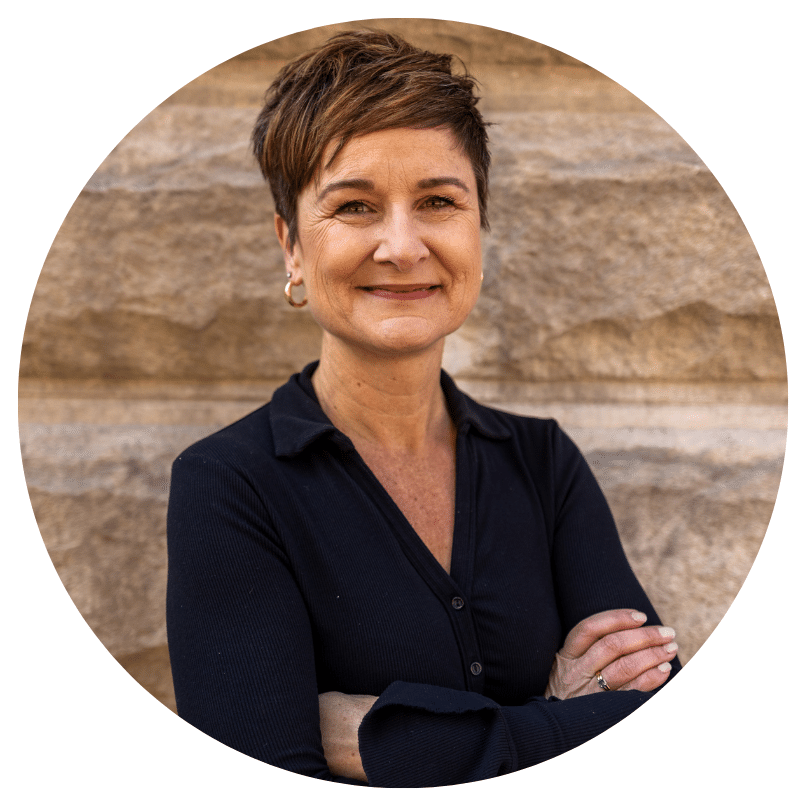 Robyn Penner Thiessen (RPT): Absolutely. My path began in rural Manitoba and later took me to Kenya for seven years. The experience in Nairobi opened my eyes to the stark realities of inclusion and exclusion based on skin color and ethnicity. Raising our two Black children in Manitoba for the past 20 years further deepened my understanding, as I observed how their experience was and continues to be different than mine. Additionally, working in an international relief organization across forty countries honed my focus on DEI work.
Robyn Penner Thiessen (RPT): Absolutely. My path began in rural Manitoba and later took me to Kenya for seven years. The experience in Nairobi opened my eyes to the stark realities of inclusion and exclusion based on skin color and ethnicity. Raising our two Black children in Manitoba for the past 20 years further deepened my understanding, as I observed how their experience was and continues to be different than mine. Additionally, working in an international relief organization across forty countries honed my focus on DEI work.
WCC: Cultural competence seems pivotal in today’s workplaces. How do you define it?
RPT: Cultural competence, to me, means the ability to effectively bridge differences. It’s having a deeper understanding of the complexity of staff cultural identities and being able to effectively navigate those differences, including diverse ethnicities, religions, genders, sexual orientations, and generational gaps–, to name a few. As our workforce diversifies – with projections showing newcomers comprising a third of Canada’s workforce by 2036 and a doubling in the number of people with disabilities – cultural competence becomes critical for effective leadership, team management and communication.
Inclusive workplace cultures significantly impact team dynamics and individual staff experiences. For instance, I remember a team member with a hearing disability who felt excluded from casual conversations when comments were made quietly or she couldn’t see their faces. Once the team became aware, small behavioural changes made a big difference in helping her feel more included. Similarly, a young newcomer felt isolated due to cultural differences in greetings at work. Colleagues quickly adjusted their behaviour (e.g. a warm morning greeting!), and these seemingly small changes improved the overall work culture for everyone.
 WCC: What recommendations do you have for leaders aiming to create an inclusive organizational culture?
WCC: What recommendations do you have for leaders aiming to create an inclusive organizational culture?
RPT: I encourage leaders to recognize that we are in an era where new skills are needed to effectively lead their diverse teams. One of those new skills is developing greater cultural competency (or cultural intelligence) and then bringing that awareness and insight into every facet of their role. When the entire leadership team is working at this together, that’s when organizational culture shifts and systemic change is possible!
Developing cultural competency, unfortunately, doesn’t “just happen;” it requires an intentional effort. This often begins with deeper self-awareness, understanding how their values influence their leadership style. This means questioning assumptions about even seemingly small things like the definition of a successful meeting – is it about efficiency, or is engagement and diverse participation a key objective?
Practical steps are crucial. Initiatives like inclusive check-ins and team meetings can be excellent starting points. It’s not about overhauling the organization overnight but consistently making small changes. This approach aligns with James Clear’s “Atomic Habits” concept – focusing on small, consistent behavioural changes.
Additionally, leaders should embrace continuous learning on diversity and inclusion, embedding these concepts into everyday practices. This might involve reassessing recruitment processes or revising promotion criteria to ensure inclusivity and fairness.
Recognizing the strategic importance of diversity and inclusion, particularly given current workforce realities, is crucial. When leaders understand how these elements contribute to the success of their business – not just as a ‘nice-to-have’ but as fundamental to the bottom line – that’s the first step toward meaningful change.
WCC: As we start a new year, how can organizations incorporate inclusivity into their goals?
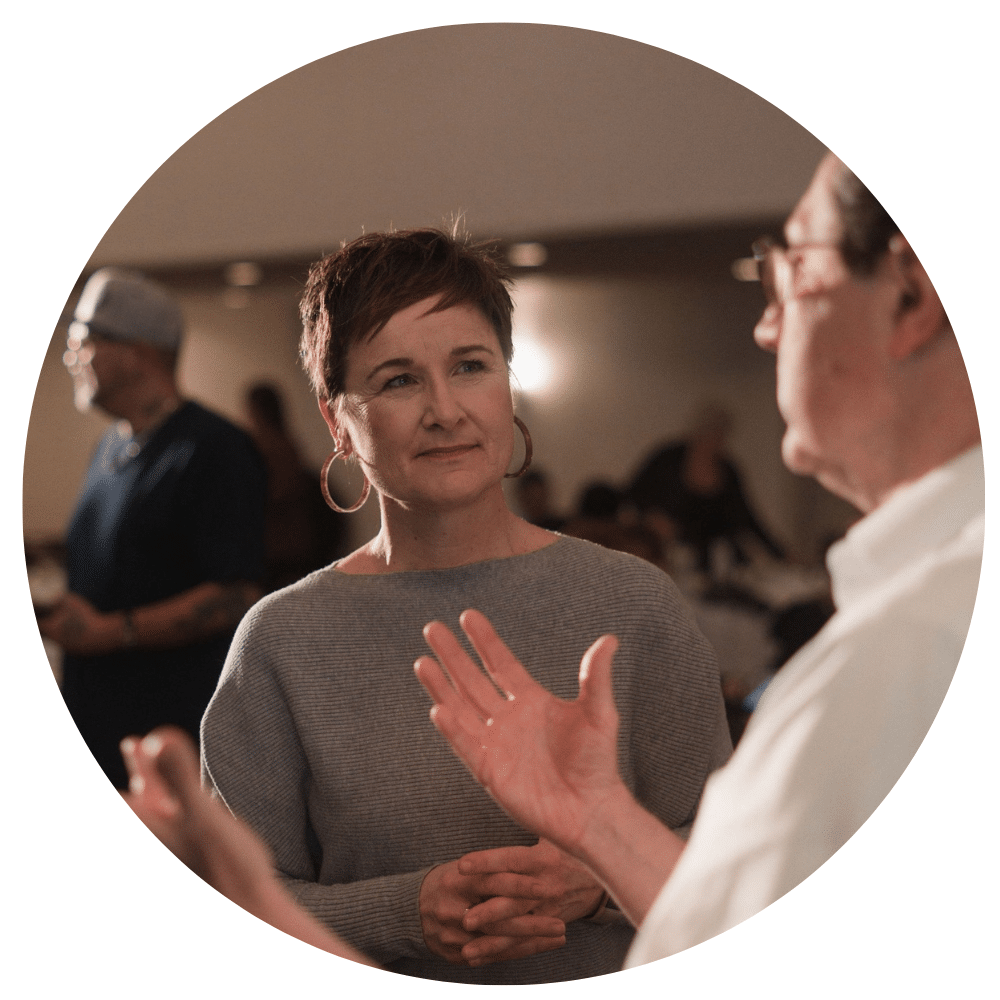
RPT: Start by openly communicating a commitment to fostering a more inclusive workplace culture and then put that commitment into tangible actions. A practical step could be as simple as modifying holiday policies to respect diverse cultural observances, allowing employees to celebrate their important days without using vacation time.
Building on the concept of consistent, small changes leading to a more inclusive culture over the longer term, leaders could start the year by asking for feedback on inclusivity, organizing learning sessions on cultural awareness or microaggressions, or encouraging conversations about different cultural holidays. These efforts can all contribute to cultivating a more inclusive environment.
A bigger goal for the new year could be reviewing and implementing policies and structures that embody a commitment to inclusion. This might include flexible working arrangements, creating a diverse hiring panel, or establishing a diversity and inclusion committee.
These small but impactful actions can collectively build a workplace where everyone feels valued and included. The ripple effect can be seen in increased productivity, innovation, collaboration, and overall employee satisfaction.
Our conversation with Robyn provided a wealth of insights into cultural competence and inclusion. These reflections and strategies serve as a guide for leaders and organizations aiming to foster a more inclusive and dynamic workplace.
For more information on what we talked about, here are some resources that you may find useful:
- Get in touch with Robyn directly by visiting robynpennerthiessen.com or at [email protected]
- For continuous learning on DEI, consider attending CODE Events and Workshops
- To get started on your DEI strategy, explore the CODE Kickstart Guide
- Increase representation on your Board and/senior leadership by joining the 50-30 Challenge
- For information and recommendations on how to create and implement an Inclusive Holiday Leave policy, review our CODE Resource on the topic.
Connect with Robyn:
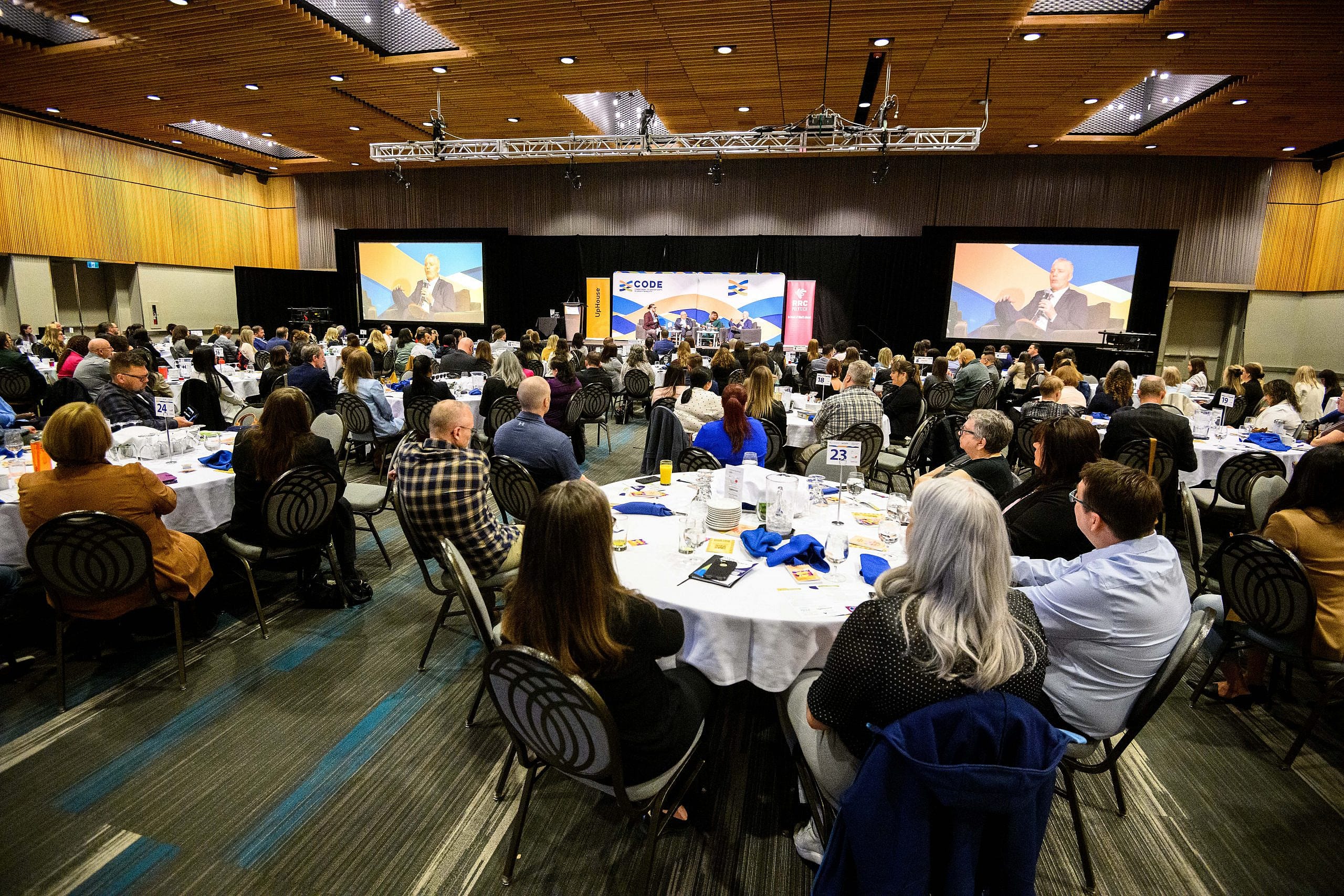
Photo by Mike Sudoma
At our CODE Conference
The annual CODE Conference is your gateway to essential insights for thriving in today’s diverse business landscape. Join Robyn Penner Thiessen, the DEI expert behind the Workshop “Navigating Complex DEI Challenges in the Employee Lifecycle”.
In this workshop, discover the intricacies of Diversity, Equity, and Inclusion (DEI) issues across the employee journey. Led by Robyn Penner Thiessen, a seasoned expert in DEI, this workshop delves into topics such as algorithmic bias, neurodiversity inclusion, and the impact of microaggressions. Equip yourself with strategies to navigate contemporary DEI challenges and foster meaningful change within your organization.
Register Now for the CODE Conference.
At Robyn’s Programs & Events
Navigating Diversity: Inclusive Leadership for a Complex Workforce
Elevate your leadership journey with the Inclusive Leadership Program, a comprehensive, 5-month learning experience designed to enhance your cultural competence and equip you with the skills to lead your diverse team effectively. Going beyond mere theoretical insights, this program provides practical tools and strategies to navigate the complexities of a diverse workforce.
This program is designed for management or leadership teams to undertake as a cohesive cohort, promoting a culture of inclusion and excellence within your organization.
Contact Robyn for more information – [email protected]
Understanding, Addressing & Interrupting Microaggressions in the Workplace
Date: March 8, 2024 (half-day virtual workshop)
Unlock the power to be a true ally! Join us for an immersive half-day workshop focused on understanding, addressing, and interrupting microaggressions. This transformative session goes beyond awareness, providing actionable steps to strengthen your allyship.
- Delve deep into the intricacies of microaggressions, gaining a profound understanding of their impact on individuals
- Equip yourself with the tools to interrupt and address these subtle biases in the workplace and beyond.
Exclusive 30% discount for Chamber members. Use code: Inclusion30
Register HERE.

